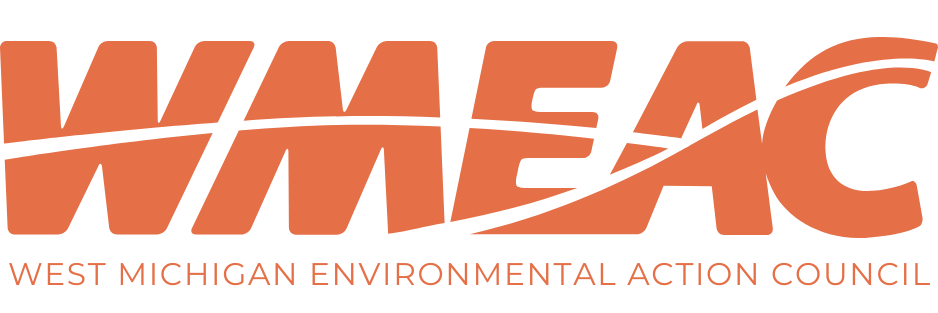By Lindsey Schmidt, Eco-Journalism and Blogging Intern
Regions across the world are experiencing the devastating effects of climate change in the form of widespread wildfires. This summer, the western region of Maui, an island in Hawaii, was evacuated due to wildfires. Similarly, Rhodes, an island in Greece, was evacuated for the same reason. Wildfires in Canada raged for months, even impacting the air quality here in West Michigan. Wildfire smoke is a more short-term contributor to poor air quality that arises from other, more long-term contributors, such as the carbon emissions and rising ozone levels that are heating up the atmosphere. Carbon emissions are a direct result of burning fossil fuels for energy and can also be a result of things like transportation. Locally, there are concerns regarding increased truck traffic along Cesar Chavez Avenue in Grand Rapids. This street runs through a neighborhood, and along it is an elementary school, a library, an arts center, and other businesses; in short, there is a significant number of people who frequent this location who might be impacted by the poor air quality caused by increased truck traffic.
Luckily, in response to the air quality issues that have resulted from wildfire smoke, truck traffic, and more, an organization called JustAir has been taking action to improve the community’s awareness of air quality issues and how to deal with them. They have installed 13 air quality monitors in the 49507 ZIP code, and the status of each of these air quality monitors is available to view either on their website or on their mobile app. The mobile app also offers six tips for protecting yourself against poor air quality, including avoiding exercise near high-traffic areas, using an N95 mask, buying indoor plants, using an air purifier, closing windows, and changing your air filters. They also recently hosted a few meetings in the area to spread the word about their initiative and teach people about how to deal with poor air quality. WMEAC’s Director of Engagement, Marshall Kilgore, was able to attend one of these meetings, and he reported that his main takeaway was that even though air quality issues were in the news a lot lately due to the wildfires, air quality fluctuates all the time and it is important to monitor it, be aware, and take precautions when necessary. At the meeting, JustAir representatives also discussed how air issues disproportionately impact marginalized communities and they gave away three high-quality air filters to attendees.
JustAir is active not only in Grand Rapids but also in Detroit, Dearborn, Kalamazoo, and throughout Wayne County. Outside of Michigan, JustAir offers clean air solutions to residents of Waterbury (a city in Connecticut) and Colorado. When asked about their organization and their role in Grand Rapids, Darren Riley, co-founder and CEO of JustAir, said, “We work alongside resident leaders who are living in communities most impacted by air quality. In Grand Rapids, C4 (Community Collaborative on Climate Change) is one of our most active partners because they exemplify a true community-led initiative. C4 leaders are on the ground talking to neighbors about air quality, and the JustAir dashboard gives them the data they need to showcase issues and advocate for change in their neighborhood and across the city.”
JustAir also collaborated with the Roosevelt Park Neighborhood Association, the association representing the neighborhood impacted by the Cesar Chavez Avenue truck traffic, and there have been a few air quality monitors installed in that area. WMEAC is supporting the Roosevelt Park Neighborhood Association in their endeavors to come up with even more solutions to the problem, such as exploring alternate routes or reconstructing the roads so there is a more direct route for trucks to get to the highway, but it is important that community members are aware of JustAir’s initiative and take advantage of the monitors and the tips that they offer. Community members can also attend future meetings to become more informed (and potentially win themselves a new air filter).
Local communities are being impacted by poor air quality caused by a variety of different factors, from increased truck traffic to widespread wildfires. Fortunately, we have organizations such as JustAir, who are taking action to combat poor air quality and educate communities about it. It is imperative that more people involve themselves in initiatives such as this one, as air quality will only continue to deteriorate if we ignore it. On an individual level, people can contribute to fewer carbon emissions by being mindful of their energy use, participating in events such as the meetings hosted by JustAir, and advocating for their community as the Roosevelt Park Neighborhood Association is doing. To protect themselves, individuals can utilize the air quality monitors and prepare accordingly by closing windows, wearing masks outside, and getting an air purifier or plants (nature’s air purifiers) for their homes. Raising awareness about matters such as these will lead to overall safer, happier, and healthier communities.


